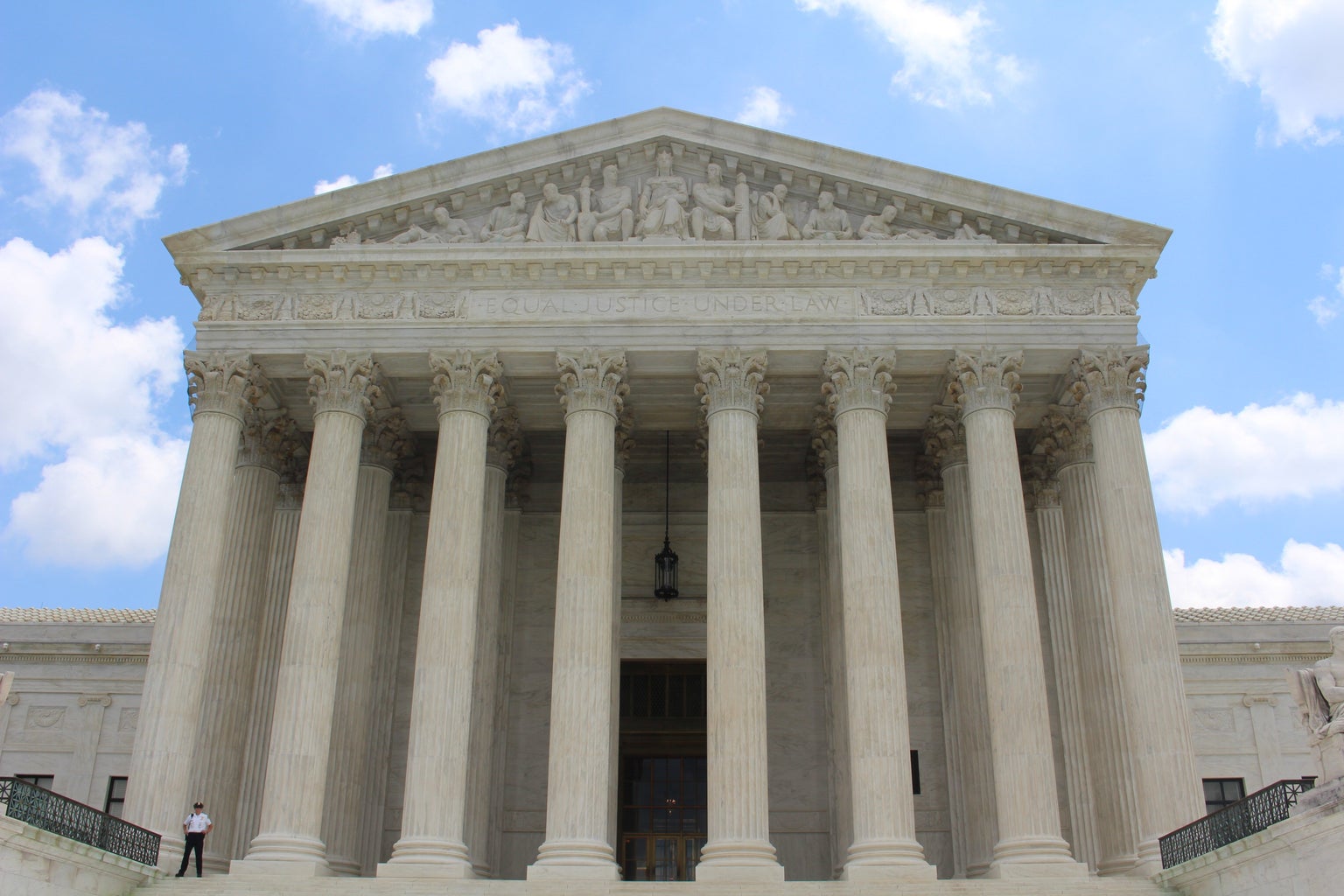“Do you agree with this book that is being taught with kids that babies are racist,” is among one of the multiple questions asked of Supreme Court nominee Ketanji Brown Jackson during her hearing. Multiple Republican senators targeted question after question with no real standing in what a Supreme Court hearing’s function is, and it wasn’t accidental.
The History of Supreme Court Hearings
The process of nominating and confirming a Supreme Court nominee is a painstaking process for all involved, but specifically the nominee. In preparation for the Supreme Court hearing, months are taken to comb through and collect all necessary information and records about them.
This deep dive into both professional and personal walks a thin line of what constitutes information for a legitimate hearing, and what is used for a targeted attack. Using this information to launch targeted attacks at the nominee is a bipartisan action taken by the opposing party during the hearings. The time used to collect information is in turn used to prepare the nominee for the week-long hearing in which any of this information can be entered into record.
The goal of a Supreme Court nominee hearing is to determine the merit of a Supreme Court nominee’s judicial abilities. Traditionally, senator’s question the nominee to unearth answers about their judgment, philosophy and qualifications. Throughout the hearing, senators determine the merit of a nominee’s ability that ends in a vote to confirm or deny the nominee.
Past Supreme Court Hearings
Since 2010, six Supreme Court hearings, including Jackson’s, have occurred. All but one of those nominees, 2016’s Merrick B Garland, have been confirmed and currently hold seats on the Supreme Court. Because of the three Supreme Court nominees brought in during Trump’s presidency, the stark differences of these hearings are easy to spot.
During Supreme Court Justice Brett Kavanaugh’s confirmation in 2018, every question was met with an aggravated and emotional response. While the Kavanaugh Hearing was more fruitful than the Barrett hearing, his overtly emotional responses were met with respect and support from the Republican colleagues. Had the current nominee responded with such disgust to how they were treated, questioning senators would have become quick to accuse them of hiding answers or being unfit.
During the most recent hearing of Judge Amy Coney Barret, her unwillingness to answer any question was met with support and pride from Republican senators. While Democratic senators did not maintain the most respectful demeanor during the hearing, it was in no way comparable to that of Republicans during the Jackson hearing. Whether the question had stood in the hearing or not, Barret refused to answer most questions, leaving the committee with little information about her judgment, philosophy or qualifications.
One answer given by Barrett reads, “I can’t characterize the facts in a hypothetical situation, and I can’t say to hypothetical set of facts,” formally admitting she couldn’t answer the questions she was meant to. After four days of questioning, Barrett had answered almost nothing and was promptly confirmed by a Republican majority Senate.
The Historic Nomination of Ketanji Brown Jackson
Despite having the most breadth of judicial experience in comparison to any Justice currently serving on the Supreme Court, Republican hold out of the nomination has been increasingly apparent throughout the hearings.
The nomination of Jackson marks many historic moments for the Supreme Court. Jackson would be set to be the first Black woman to serve the Supreme Court, as well as to be the first public defender to sit on the bench in the 200-year history of the Supreme Court. Jackson has one of the most unique experiences, as her career is one of the most extensive of current Supreme Court Justices.
Jackson graduated from Harvard College magna cum laude, following up with Harvard Law School. There she worked as the supervising editor of the Harvard Law Review and graduated cum laude. Jackson clerked for Judge Patti Saris promptly after completing Law School, followed by clerking for Supreme Court Justice Bryer. She then went on to private practice where she worked as an associate at two LLPs from 2000 to 2003.
Then serving as an assistant special counsel to the U.S. Sentencing Commission, Jackson worked on establishing and maintaining sentencing guidelines for federal courts. From 2005 to 2007 Jackson served as assistant federal public defender, the position that adds to the historic making of Jackson’s career. She returned to private practice in 2007 until 2010, while she also served as counsel for the National Association of Criminal Defense Lawyers.
Jackson was then nominated by President Obama to the U.S. Sentencing Commission as Commissioner. Nominated again by former President Obama, Jackson served in the U.S. District Court for the District of Columbia. After remaining in this position until 2021, Jackson then was nominated by current President Biden to the Court of Appeals in Washington, D.C., which concludes Jackson’s extensive and dedicated history to the justice system.
The Dreaded Hearings
Beginning March 21, the Supreme Court hearing of Ketanji Brown Jackson has been one of the most blatant attempts of Republicans to smear democrats, the current President, but most notably the nominee herself, Ketanji Brown Jackson. While Republican senators stated they would take the moral high ground, it became clear that throughout the hearing they could not help but do the opposite.
Senator Grassley (R-IA) stated, “We won’t get down in the gutter like Democrats did during the Kavanaugh confirmation hearings” directly followed by an irresponsible performance by many well-known Republican senators. Senator Cramer(R-ND) is quoted saying, “There is a need to punch back”in response to the Democrat’s actions during hearings from 2020 and 2018 hearings.
One of the most notable of these senators is Senator Cruz (R-TX). His time allotment began with a lecture on the importance of the Supreme Court and by attempting to slam Democrats for misusing the courts. Throughout the multiple rounds the Senator held, many questions were attempts to corner Jackson and had no relevance to the purpose of the hearing.
On Wednesday, Senator Cruz asked questions that were about teaching anti-racism to kids, Jackson’s thoughts on critical race theory and what would happen if someone decided to identify as a different ethnicity then they were. With no basis to the purpose of the hearing, Jackson stated that these questions had no relevance to her ability to be a partial judge.
In comparison to Justice Barrett, Jackson did answer questions about recusing herself during cases that conflicted with her personal life. Chair member Senator Dick Durbin (D- IL) attempted to stop Cruz multiple times, yet he refused to yield his time.
Other Senators, including Senators Blackburn (R-TN) and Graham (R-SC), decided to join Senator Cruz’s personal crusade against the nominee and in defense of Justice Kavanaugh. Despite supporting Jackson’s 2021 nomination to Washington, D.C. Circuit Court of Appeals, Senator Graham has done a complete 180 on supporting Jackson. Senator Graham’s questioning took a personal turn, asking about the Kavanaugh Hearings of 2018, her religious beliefs and previous rulings that had been in line with other federal judges.
Senator Blackburn, who also questioned Barrett during her Supreme Court hearing, emphasizes the differences in treatment between the two nominees. “Blackburn has used her time during the day long hearing to humanize Barrett with questions about her family life and being a conservative female judge” is how NBC News characterized Blackburn’s questions of Barrett
In comparison to Senator Blackburn’s questions for Jackson, which were to define the word “women.” When Jackson responded she wasn’t a biologist and could not answer that question, Blackburn took the chance to highlight Republican bills centered in transphobic legislation.
The general treatment of Jackson throughout the hearing has highlighted the discrepancy in Republicans’ words compared to their actions. Republicans used the hearing to air grievances, grievances that Jackson had no part in. Despite this, much of the Republican aisle of the committee used Jackson as a personal punching bag for the action of Democratic Senators during the Kavanaugh Hearing. Unwilling to acknowledge the wildly different types of hearings between Jackson and Kavanaugh, Republicans pride themselves on actions and questions lodged at Jackson. Senators made accusations again and again at Jackson, while losing their “respectful” demeanor that was supposed to set apart the two parties in the hearing.





